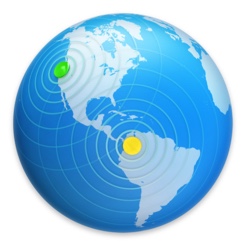Today I noticed that there was a new update for MacOS Server that had quite a lengthy explaination:
 As per Apple Knowledge Base article HT208312, the once great Apple Server product as this fall will be reduced to:
As per Apple Knowledge Base article HT208312, the once great Apple Server product as this fall will be reduced to:
- Profile Manager
- Open Directory
- Xsan
The rationale of this is, according to Apple:
In fall 2018, Apple will stop bundling open source services such as Calendar Server, Contacts Server, the Mail Server, DNS, DHCP, VPN Server, and Websites with macOS Server. Customers can get these same services directly from open-source providers. This way, macOS Server customers can install the most secure and up-to-date services as soon as they’re available.
Now this isn’t really news as it was already announced that the functionality of the Apple Server product would be reduced (again, as this has become a trend for the last few years), though this change has quite an impact. It is already clear for some years that Apple has abandoned the server space and now dropping the key services that any company and organization needs fits in that trend as well as the way Apple does this. The list of services being dropped is however quite long:
- Mail Server
- Calendar Server (CalDAV
- Addressbook Server (CardDAV)
- Wiki and Server Docs
- Messages
- DNS
- VPN
- FTP
- Net Boot/Net Install (needed tools are in MacOS but no management GUI)
- Radius
A few services are not really dropped but moved to the MacOS platform or into a separate tool:
- Websites (Apache)
- File Server
- Caching Server
- Time Machine Server
- DHCP (without GUI though)
- Firewall
- Airport Management (in Airport Utility)
Although Mac Server has been a great product initially and served a purpose for many, it (or actually Apple) has always struggled with keeping the open source packages it included up to date.. Unfortunately this is not a gradual nor manageable change for those running their infrastructure on MacOS servers (like myself) and leaves only two options: 1) get (alternative) products / solutions working on MacOS or 2) migrate services to another platform. Given that there are many products already available on both Windows and Linux platforms, most will most likely turn to other platforms and reduce their use of MacOS Server (or completely cease using it) because of it. Whether this is what Apple intends is not clear though effectively it will result in many dissatisfied users and MacOS changing from a nice to a marginal player in the server space.
Over the next couple of weeks (months) I will move my services back to Debian Linux (so opting for #2) as I am very familiar with that platform (still have quite a few systems used for other purposes) and it gives me the advantage of a good infrastructure for updates (and during the past many years an upgrade hardly ever broke my setup).
For those interested, I will document the steps I go through and solutions I will use to replace my MacOS Server setup:


